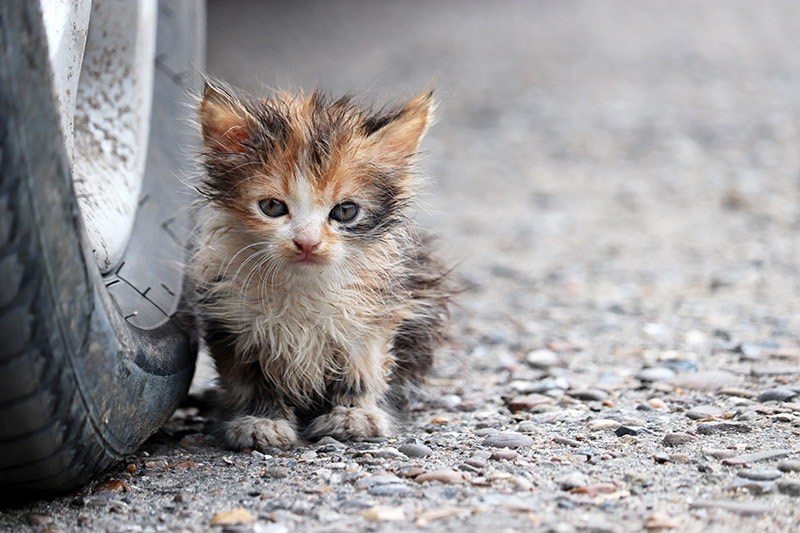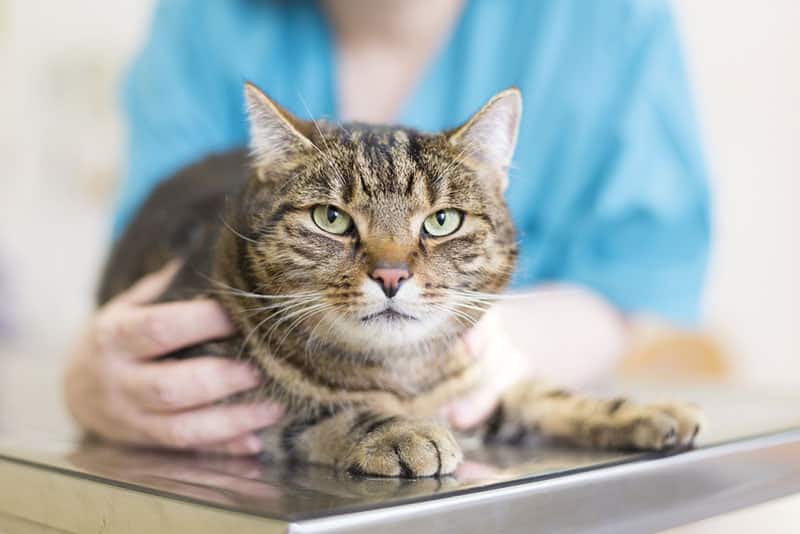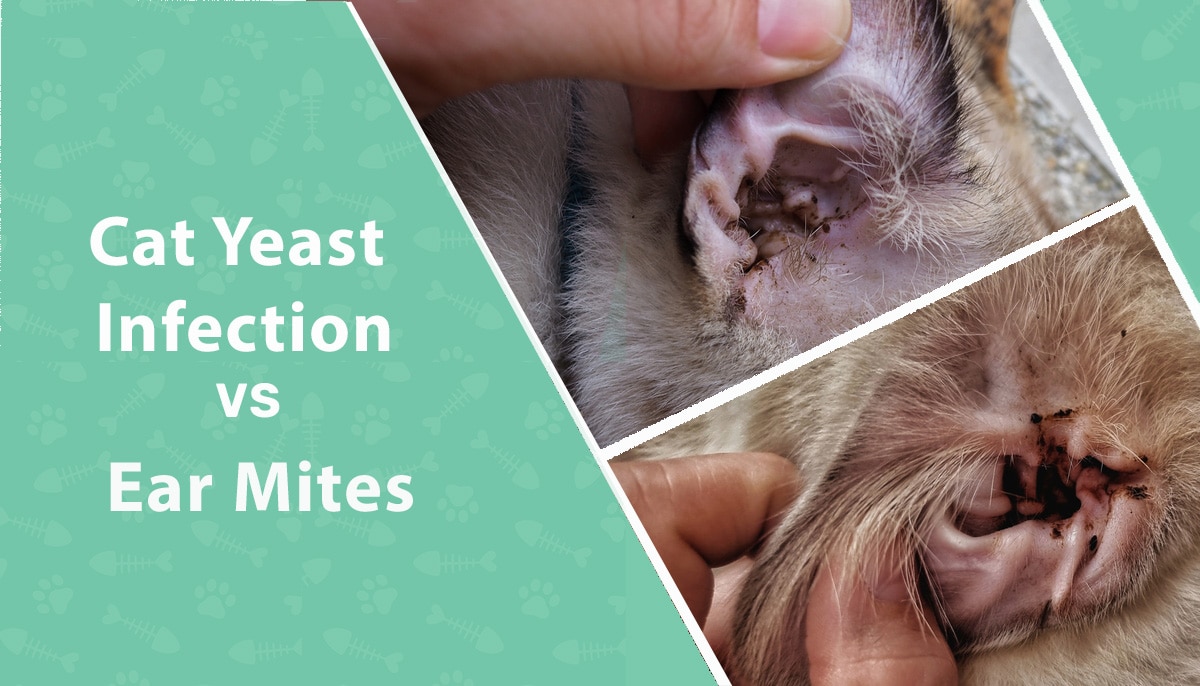Click to Skip Ahead
Deciding what to do when you find a stray kitten requires fast thinking and a cool head, and the first order of business is determining if they’ve been abandoned or not. Young kittens are always better off being raised by their mothers. Baby cats get all their nutrition from their mother’s milk in their first weeks of life.
If you find a litter of kittens that appear to be younger than 8 weeks old and healthy, it’s usually best to leave them alone and allow their mother to care for them. If you’re sure the kittens have been abandoned, they seem ill, or if you happened upon a single kitten who appears to be in distress, there are a few things you can do to help; the first step is to get them warm and into a safe, protected environment.
How Do I Determine if a Kitten Has Been Abandoned
If you’ve found several kittens who appear to be napping comfortably, monitor from a distance as there’s a good chance mom has just stepped away temporarily. If you come back to check on the kittens a few times and one appears to be missing, it’s likely that their mother is actively engaged with her babies and moving them to a more protected location. Kittens who appear to be malnourished or ill may have been abandoned.
If you have determined that their mother is still caring for them, then it’s best to leave kittens undisturbed. You can provide food and water for the mum nearby (not too close to her nest), and seek advice from your veterinarian or animal shelter to help the kittens and mother once they are weaned.

How Can I Provide Immediate Care for an Abandoned Kitten
If you are sure the kitten is abandoned then you will need to step in and capture them in order to help them. If they are young this may be as easy as simply picking them up, but for older and feral kittens you may need to seek help from your vet or local animal shelter. Remember that capturing an older kitten does come with risks to your own health as they can bite or scratch you if frightened, and so may be best left to experienced professionals. If you do suffer a cat bite or scratch contact your doctor as they can result in serious infections.
Once you have captured the kitten, your first role is to ensure they are nice and toasty. Wrapping a young kitten in warm towels and keeping them close to your body allows them to warm up gradually. Wait until they’re warm and active before offering them anything to eat.

How to Care for an Abandoned Kitten at Home
Get the kitten to your veterinarian for a check up to determine their health status and age as soon as possible. You can also contact your local animal shelter for advice and support. Providing the right environment for the kitten depends on determining how old they are. Young kittens require far more attention and care than those who can eat and go to the bathroom on their own. As a general rule, kittens with closed eyes and ears are younger than 2 weeks old.
Keep reading to learn how to care for your new charge, including what to feed a stray kitten.
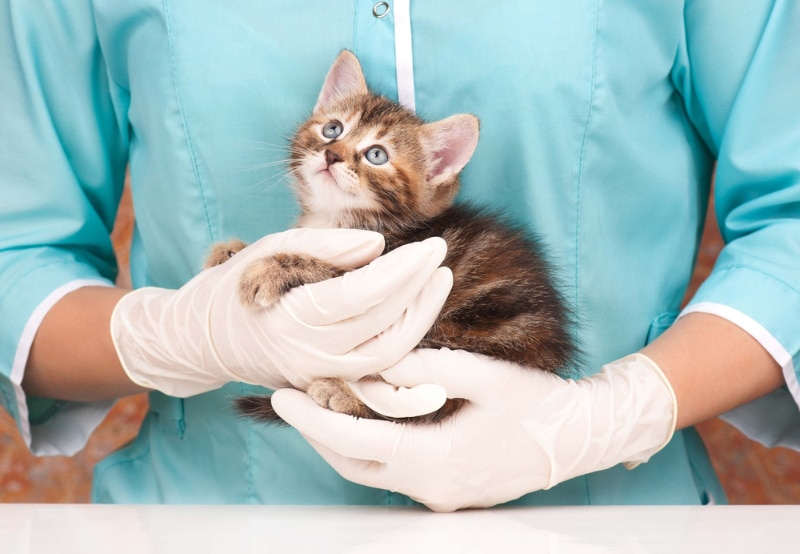
Where to Keep a Kitten
Create a nice, cozy nest for the kitten; boxes or crates lined with blankets and towels make great choices. Place the nest in a calm, safe place away from the hustle and bustle of household activities and inaccessible to other pets.
How to Keep a Kitten Warm
Since providing a warm place for kittens to snuggle is critical, you’ll likely need to find a heat source to keep their nest warm. Temperatures between 89° and 93°F are ideal for newborn kittens; 75°F is okay once they reach about 4 weeks old.
Covered heating pads set on low can help, but place them strategically underneath the box and make sure only part of the nest’s floor covers the heating pad so your kitten can cool off if they become too warm. Also watch for signs of the kitten overheating such as lethargy or panting. Heating pads made for pets are available but don’t get quite as hot as products for humans and are generally safer for pets.
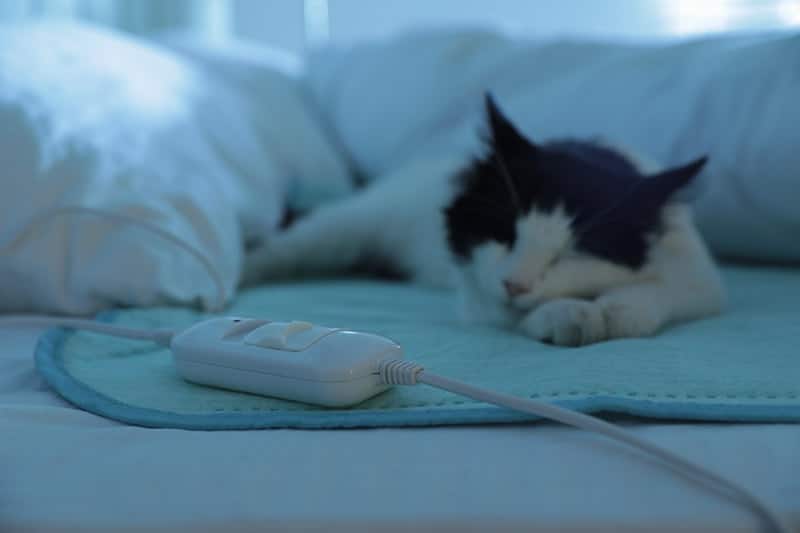
What to Feed a Stray Kitten
Kittens have very specific nutritional requirements. They can’t drink cow’s milk and should be fed a kitten replacement formula using a bottle or eye dropper, which is pretty much all they need until it’s time for them to start transitioning to solid food.
The weaning process usually takes about 4 to 6 weeks and generally begins when kittens are about 1 month old or so. Start off by mixing a bit of formula with wet food and allow your kitten to dig in. Provide a fresh water source once the weaning process begins to ensure the cat stays adequately hydrated as they start consuming less formula.
A bit of encouragement and offering bites by hand may be helpful in the beginning, and shallow dishes make it easier for kittens to get to their food.
How Often to Feed a Kitten
Kittens generally need to have kitten formula every 2 or 3 hours until they’re around a week old. Those who’ve hit their second week need to be fed about every 3 or 4 hours. By week 3, most can go for 4 to 6 hours between feedings. Kittens need to have their bottoms and tummies stimulated with a warm wet cloth or cotton wool to encourage them to go to the bathroom until they’re about 3-4 weeks old.
By their sixth week, kittens usually eat largely on their own and generally are fine being fed a mixture of wet food multiple times a day. Kittens are fully weaned and should be eating regular kitten food by the time they’re about 2 months old.
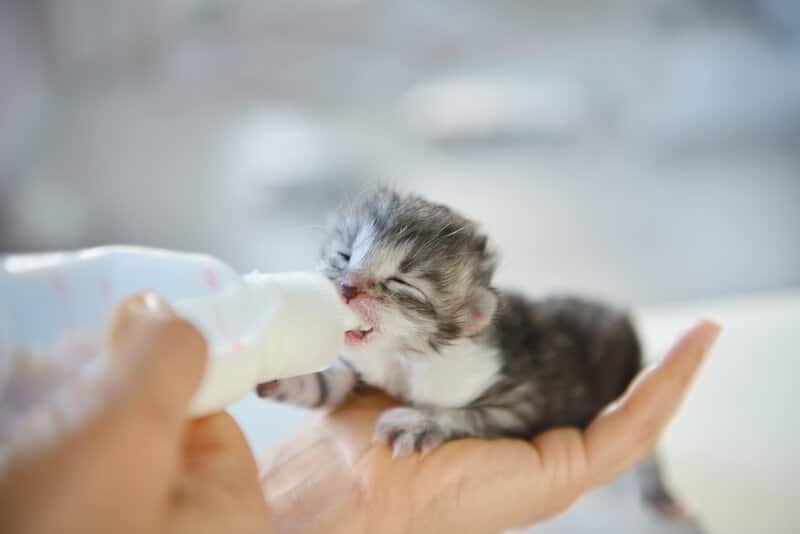
Health Care
Regularly weigh the kitten and monitor their appetite, demeanor and growth. If you have any concerns then contact your veterinarian for advice. You should also consult with your vet about scheduling worming and flea treatments, vaccinations and neutering.
Conclusion
When you find a kitten, the first thing to do is to make sure they’ve really been orphaned. If you’re sure the kitten has been abandoned or doesn’t appear to be doing well, stepping in may save their life. Keeping kittens warm is absolutely essential since they have trouble regulating their temperatures at first and require help staying warm. Unweaned kittens should stick with a kitten replacement formula since cow’s milk can make them ill. Most are weaned onto regular kibble and wet food by the time they’re about 8 weeks old.
Featured Image Credit: Oleg Elkov, Shutterstock

